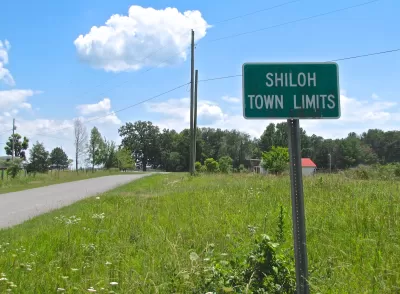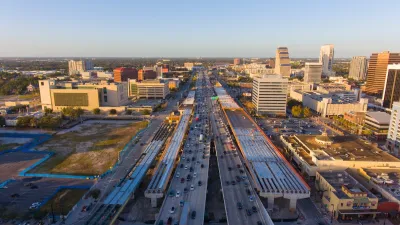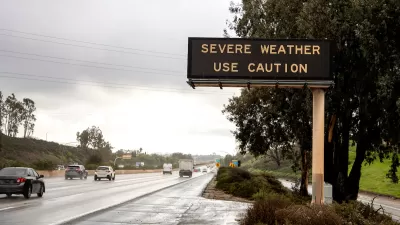An earlier settlement for flood damages incurred by residents of Shiloh, Alabama came with an unexpected condition.

In an article for Inside Climate News, Lee Hedgepeth describes how restrictive deed covenants attached to residential properties in Alabama limit residents’ ability to file actions against the state related to flooding.
“The covenants, released by the Alabama Department of Transportation (ALDOT) in response to a records request by the Southern Environmental Law Center, show that agency officials have been aware of residents’ flooding concerns for years.” Yet residents of Shiloh, a historically Black community, say flooding in their ara began after a 2017 expansion of Interstate 84, which elevated the highway and caused flooding in adjacent properties, displacing residents for months.
When Shiloh residents sought to recover the costs of the damages, they and their attorney agreed to a settlement that, allegedly unbeknownst to the residents, included a restrictive covenant that prevents them or future residents from filing claims about flooding. “The situation in Shiloh recently garnered nationwide attention when Secretary of Transportation Pete Buttigieg visited in April, part of a tour of communities confronting histories of infrastructure decision-making that subjected some residents, who often live in communities of color, to shoulder disproportionate harms from pollution, flooding and abandonment.” For now, Shiloh residents continue to call for increased accountability on the part of ADOT, which says it will try new measures to mitigate flooding and is considering offering to buy out the affected homeowners.
FULL STORY: How Alabama Turned to Restrictive Deed Covenants to Ward Off Flooding Claims From Black Residents

Planetizen Federal Action Tracker
A weekly monitor of how Trump’s orders and actions are impacting planners and planning in America.

Congressman Proposes Bill to Rename DC Metro “Trump Train”
The Make Autorail Great Again Act would withhold federal funding to the system until the Washington Metropolitan Area Transit Authority (WMATA), rebrands as the Washington Metropolitan Authority for Greater Access (WMAGA).

The Simple Legislative Tool Transforming Vacant Downtowns
In California, Michigan and Georgia, an easy win is bringing dollars — and delight — back to city centers.

Proposed Ohio Budget Preserves Housing Trust Fund
The Senate-approved budget also creates two new programs aimed at encouraging housing construction.

DOJ Says Trump Has Power to Roll Back National Monuments
The opinion sheds light on how the administration may justify its effort to eliminate protected public lands.

Maryland Awards $1.25M in TOD-Related Grants
The state’s DOT is funding projects that prepare sites around transit stations for future mixed-use development and housing.
Urban Design for Planners 1: Software Tools
This six-course series explores essential urban design concepts using open source software and equips planners with the tools they need to participate fully in the urban design process.
Planning for Universal Design
Learn the tools for implementing Universal Design in planning regulations.
Smith Gee Studio
City of Charlotte
City of Camden Redevelopment Agency
City of Astoria
Transportation Research & Education Center (TREC) at Portland State University
US High Speed Rail Association
City of Camden Redevelopment Agency
Municipality of Princeton (NJ)




























